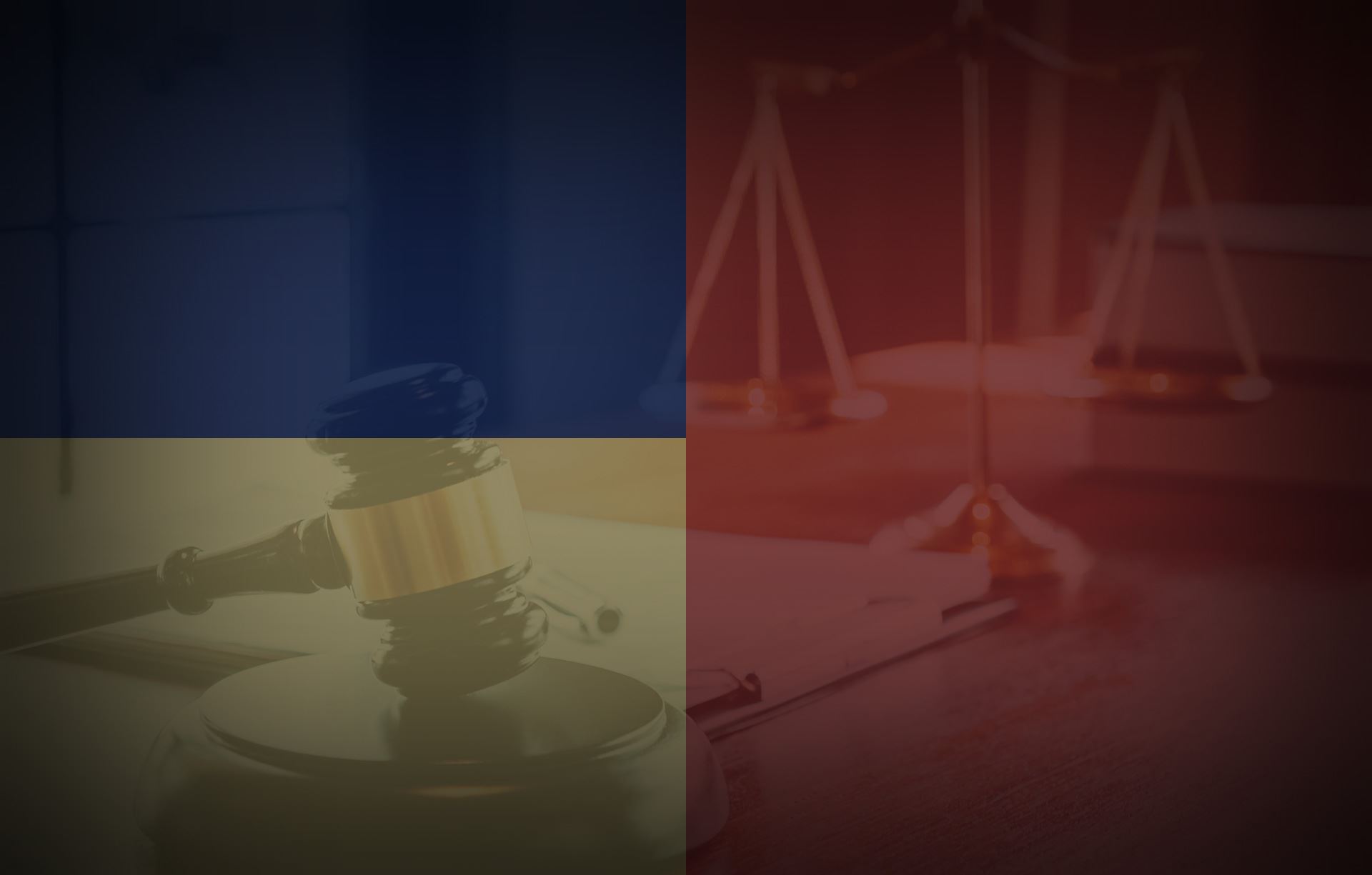
Understanding Criminal Defense
Hearings/Trials
Preliminary Hearings
In Virginia, a preliminary hearing is a court hearing held in the General District Court where a judge determines if there is probable cause or reasonable cause that an defendant committed a felony. If an defendant is charged with a felony and arrested on a warrant , they are entitled to a preliminary hearing. An defendant initially charged and arrested on an indictment is not entitled to a preliminary hearing. At the preliminary hearing, a judge may decide to either (a) certify a felony for trial in the Circuit Court, (b) dismiss the allegation if there is no probable cause, or (c) to reduce a felony charge to a misdemeanor. A finding of no probable cause is not an acquittal. The state could still pursue a case by indicting an defendant directly to the grand jury. In addition, a defendant may waive their right to a preliminary hearing, and their case is then set for trial in the Circuit Court.
Trials
Trials are judicial proceedings conducted in a court and designed to reach a decision based upon the facts, common sense, reason and applicable law. The conduct of a trial is governed by numerous rules, presumptions, and procedures designed to promote fairness and justice.
Criminal trials involve allegations of a violation of criminal law. These matters involve the determination of the guilt or innocence of an defendant and the imposition of punishment. The process usually begins with the institution of a warrant or indictment against a person. Thereafter, the defendant person appears in court and the judge determines if they are going to be represented by an attorney. A private attorney or court-appointed attorney represents the defendant. A prosecutor generally represents the government. A trial is then scheduled.
During a trial, the parties attempt to prove and persuade the judge and/ or trier of fact of the validity of their position by presenting evidence, law, and arguments of their legal and factual viewpoints. Evidence is any form of proof legally presented at a trial, including in part records, documents, photographs, forensics, drug analysis, and the testimony of witnesses. The rules of evidence control what evidence is material, relevant, and admissible in court. For example, the hearsay rule generally prohibits statements by individuals who are not in court. In addition, certain constitutional requirements may also determine if certain evidence may be used or if it is to be excluded from a trial. Application of these rules is within the sound discretion of the trial judge. The trier of fact, judge or jury in a jury trial, decides the meaning and relative importance of the evidence.
The government or person prosecuting the case first presents their evidence. This is generally done through the testimony of witnesses. The defendant through their attorney has a right to challenge or contest the materiality, relevance, accuracy, reliability, importance or significance of any evidence, including witnesses. Cross-examination is one such method. At the conclusion of the prosecution case, the defendant can make motions regarding the prosecution case including that they failed to establish their burden of proof. Thereafter, the defendant has the right to present their evidence. At the conclusion of all the evidence of a bench trial, each attorney makes a closing argument to the judge why they should prevail.
In a jury trial, the judge and the attorneys first consider and determine the appropriate legal and procedural instructions that the jury should receive. Thereafter the judge reads these instructions to the jury, and the attorneys then make their closing arguments to the jury. The closing arguments allow each attorney to present to the jury what they think the evidence means and why their side should prevail.
The judge and/or trier fact would then decide guilt or innocence. They would decide which witnesses or worthy of belief, and which evidence is the most persuasive. A defendant could be found guilty of the charges, guilty of a lesser-included offense, or not guilty. In addition, if a jury is hung, that is unable to make a decision, a defendant could be retried.
Sentencing and Punishment
A defendant tried and found guilty by the judge is entitled to a sentencing hearing. They are entitled to present evidence in their behalf. The court would review a pre-sentence report, including sentencing guidelines. A probation officer prepares a pre-sentence report before sentencing. This report may include biographical, educational, medical, social, employment, and other historical information. It may also include in part a history of the current offense, the defendant's version of the offense, a summary of court proceedings, sentencing guideline information, and a recommendation of a sentence. The information in a pre-sentence report may have a positive or negative impact on any sentencing. The court can elect to have a pre-sentence report. The report may also include a Victim Impact Statement. Specifying the physical, psychological, and economic effects on victims of the crime.
At the sentencing hearing, the defendant has the right to testify and present witnesses. The parties would then argue their respective positions to the judge. The judge imposes his sentence. If a defendant elects a jury trial, and are found guilty, the jury will have a separate hearing to decide their punishment. The jury will be informed of the defendant's prior criminal history and other relevant information. Certain offenses, or accumulation of offenses, including previous violent offenses, can result in additional or enhanced mandatory punishment.
Virginia law provides for non-mandatory sentencing guidelines for felony cases. The guidelines provide a recommended range of punishment for various offenses under particular circumstances . The guidelines take into account for many factors including in part the classification the charges, number of charges, prior records, severity of the offense, and the impact on victims . Despite the guidelines, the defendant's final sentence is within the sound discretion of the court.
Probation and Parole
Probation is supervision by the court through a probation officer or other court service agency. The probation officer or agency can bring to the attention of the court any matter that violates a condition of the defendant's probation. Besides other conditions of any suspended sentence that the court will impose, the probation officer or agency has discretion to set rules that the defendant must obey. These rules may include but not be limited to curfews, random drug or alcohol testing, counseling, employment activities, and location of residence. A defendant's failure to comply with the conditions of any suspended sentence or rules of probation could result in revocation of their sentence.
Parole is effectively abolished in Virginia. Truth in sentencing means that the defendant will serve most active jail time imposed. We are not rendering advice regarding post-sentencing procedures, including parole options.
Appeals
Misdemeanors and traffic cases can be initially appealable to the Circuit Court. The case is tried de novo (completely over). This is in essence a new trial. This procedure is designed in part to insure the right to trial by jury, though one is not required to have a trial by jury. On appeal, an defendant may be found guilty or not guilty. If found guilty, a defendant may receive a greater or lesser sentence .
A Circuit Court decision is appealable to an appellate court for review. This court can determine if all the defendant's rights were observed and that the procedures and laws were followed. The appeal is not a new trial but a review of the trial proceedings. Fundamentally, appellate courts have authority to uphold a trial decision, reverse a trial decision, or require a new trial on the whole case or specific issues. Appeals are subject to strict notice, time, and procedural requirements.
Presumption of Innocence
Despite being charged with a criminal offense, a defendant is presumed to be innocent. The prosecuting authorities have the burden to prove guilt beyond a reasonable doubt. A defendant is entitled to this presumption at all stages of their case. Generally, if the trier of fact believes the evidence against a defendant is sufficient to find them guilty, the prosecuting authority will have overcome the presumption of innocence. A reasonable doubt is a doubt based on the judge's or juries sound judgment after a full and impartial consideration of all the evidence of the case. As such, the "reasonable doubt" standard is subjective, ambiguous, and interpretive. It is not an objective standard, and creates uncertainty regarding the outcome of criminal cases.
Plea Agreement
A plea agreement or plea bargain is an agreement with the prosecuting authority regarding a defendant's case, which is presented to a judge for approval. A defendant may or may not have the option of entering a plea agreement with the prosecuting authorities. The prosecutor may not want to enter a plea agreement. There are different types of plea agreements. The most common is a plea agreement for a particular sentence. In this situation , the judge may accept, reject, or defer its decision until a persistence report. The agreement would not bind a defendant if rejected and a defendant can withdraw their guilty plea. Another judge may then conduct a defendant trial. Other types of plea agreements include the prosecuting authority's recommendation and an agreement not to oppose a defendant request for a particular sentence. These types of plea agreements are not binding on the court. On these types of pleas, an defendant cannot generally withdraw their guilty plea. The value of entering a plea agreement is dependent upon the particular facts, merits and circumstances of each case and the risk a defendant is willing to assume. The final decision to enter a proposed plea agreement is the defendant's alone.
Other Important Considerations
ATTORNEY-CLIENT PRIVILEGES - The attorney-client privilege protects the confidentiality of counsel's and a defendant's communications. Unless it is waived, such communication cannot be disclosed except for certain reasons. The privilege does not include, in part, communications that allow a client to commit a crime, intimidate a witness, or to commit perjury. If a defendant elects to have someone else present during a discussion with their attorney, the privilege may be deemed waived.
DISMISSAL WITHOUT PREJUDICE - The Commonwealth Attorney or prosecuting authority may seek to dismiss a case without prejudice ( Nolle prosequi or Nolle pross). A defendant is then subject to future prosecution. Alternatively, a dismissal with prejudice is equivalent to a finding of not guilty and a defendant cannot be retried for the same offense.
OTHER CONSEQUENCES - A defendant found guilty, including pleading guilty, can have significant consequences beyond their immediate case. A conviction can affect important matters known and unknown, past, present, or future. Such matters may include without limitation civil matters, domestic matters, military matters, employment matters, prior criminal or traffic matters, immigration matters and other important legal rights, duties, responsibilities and privileges incidental to citizenship.
REVOCATION OF PRIOR SENTENCES - A conviction can have an adverse affect on prior criminal sentences. All prior suspended sentences could be revoked or a defendant may be subject to additional punishments.
ALIENS CONVICTED OF CERTAIN FELONIES - If a defendant are not a United States citizen, they may be subject to Immigration Laws. A conviction of criminal offenses may adversely affect a defendant immigration status. If a defendant is subject to immigration laws, a defendant should seek legal advice regarding these consequences before a defendant criminal trial.
Help protect your rights, liberty, freedom, and good name with sound legal advice from a qualified criminal defense attorney. Just call 757-209-2265, e-mail us at info@larrykinglaw.com, or use our secure contact form for a Free Initial Appointment.
Larry King is a former state prosecutor and has extensive experience representing those accused of a crime. He has over to 50 years of criminal defense experience. He has represented thousands of people in all types of serious criminal offenses and traffic matters. He urges everyone to obey the law and to respect law enforcement officers. He knows however that anyone can be wrongly accused of a crime. He understands his important role in protecting his client's rights and liberty. Mr. King earned his Juris Doctor law degree from the College of William and Mary in 1974. He is a member of the Virginia State Bar and is admitted to practice in state and federal Courts. This includes all Virginia State Courts, the Supreme Court of the United States, the United States District Court for the Eastern District of Virginia, and the United States Court of Claims. He is a member of the American Trial Lawyers Association, the Virginia Trial Lawyers Association, the National Association of Criminal Defense Lawyers, the Virginia College of Criminal Defense Attorneys, the Newport News Bar Association, the Williamsburg-James City County Bar Association, and the York-Poquoson Bar Association.

-
 TENS OF THOUSANDS OF CLIENTS HELPED. MILLIONS OF DOLLARS WON.Delivering real results for clients through strategic legal representation, dedication, and a proven track record of success in personal injury matters.
TENS OF THOUSANDS OF CLIENTS HELPED. MILLIONS OF DOLLARS WON.Delivering real results for clients through strategic legal representation, dedication, and a proven track record of success in personal injury matters. -
 EVERY CLIENT IS SPECIAL. EVERY CASE IS IMPORTANT.We believe in treating every client as unique and every case as significant, ensuring personalized attention and dedicated advocacy.
EVERY CLIENT IS SPECIAL. EVERY CASE IS IMPORTANT.We believe in treating every client as unique and every case as significant, ensuring personalized attention and dedicated advocacy.

Hear From Our Clients
At Larry King Law, your satisfaction is our priority! See for yourself what our clients have to say about working with us.
-
"Knowledgeable, Experienced and Committed Trial Lawyers"
The process of choosing the right criminal defense lawyer(s) can be daunting, scary, and frustrating. Choosing wrong can not ...
- Delmas Linhart -
"They Fight For Their Clients!"
Mr. King, his associates and paralegals helped me through a very difficult time in my life. I was in a car accident with my 2 ...
- Rachael -
"Great experience!!"
I was confused and embarrassed to admit I needed help but, this was a painless ordeal and I was treated with respect and unde ...
- Stacy kahler -
"Consummate Professional"
As a police supervisor, I have known Larry King professionally for over 30 years. During that time I have always found him to ...
- Lieutenant J. W. Boswell, NNPD, Retired
-
 The Power of ExperienceCharged with a crime? Put the right attorney in your corner. We fight for the accused.
The Power of ExperienceCharged with a crime? Put the right attorney in your corner. We fight for the accused. -
 The Right LawyerWe know how to defend our clients against criminal accusations. Let us help today!
The Right LawyerWe know how to defend our clients against criminal accusations. Let us help today! -
 Get Help TodayGet a smart, skilled fighter on your side. Free consultations are available.
Get Help TodayGet a smart, skilled fighter on your side. Free consultations are available.





















